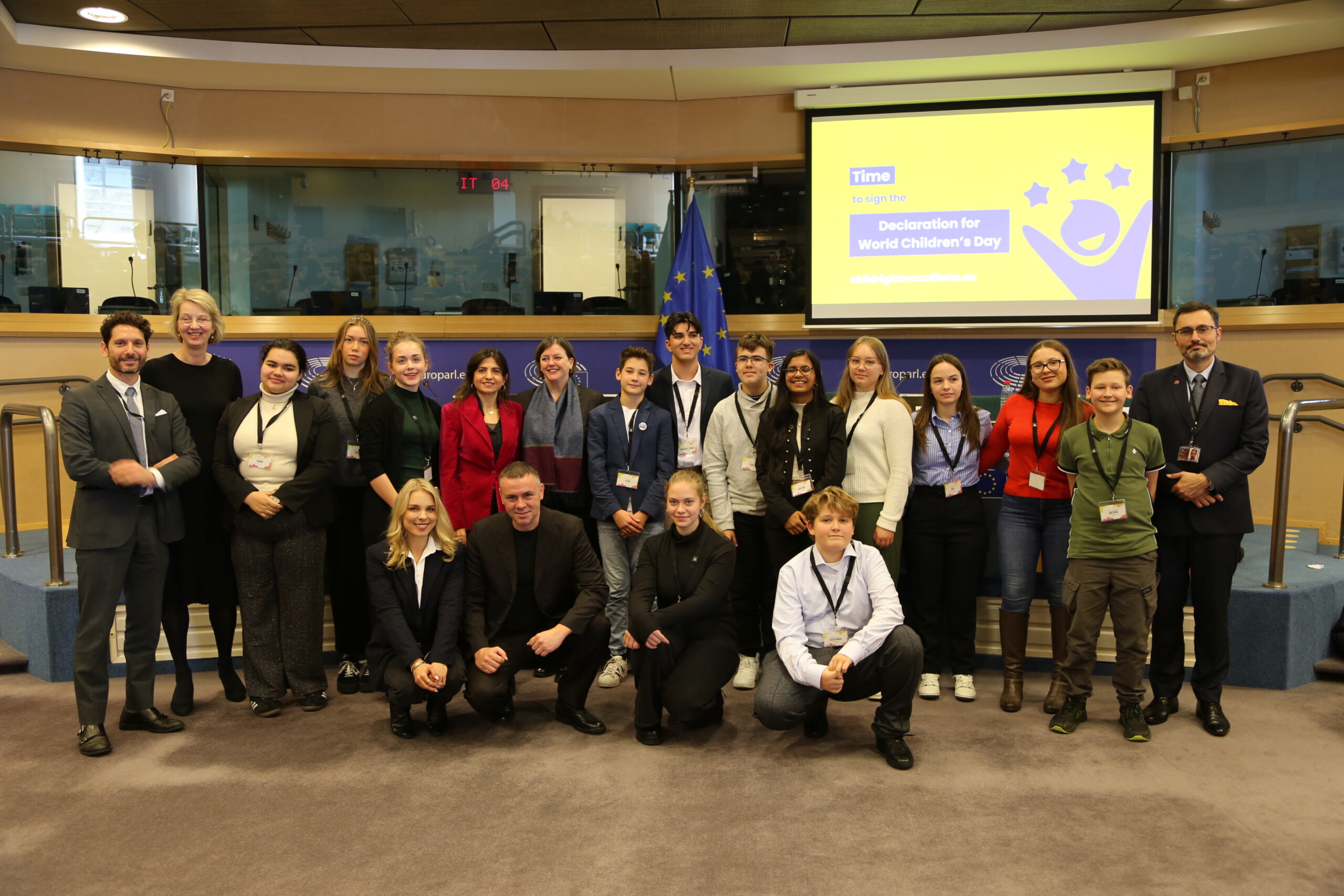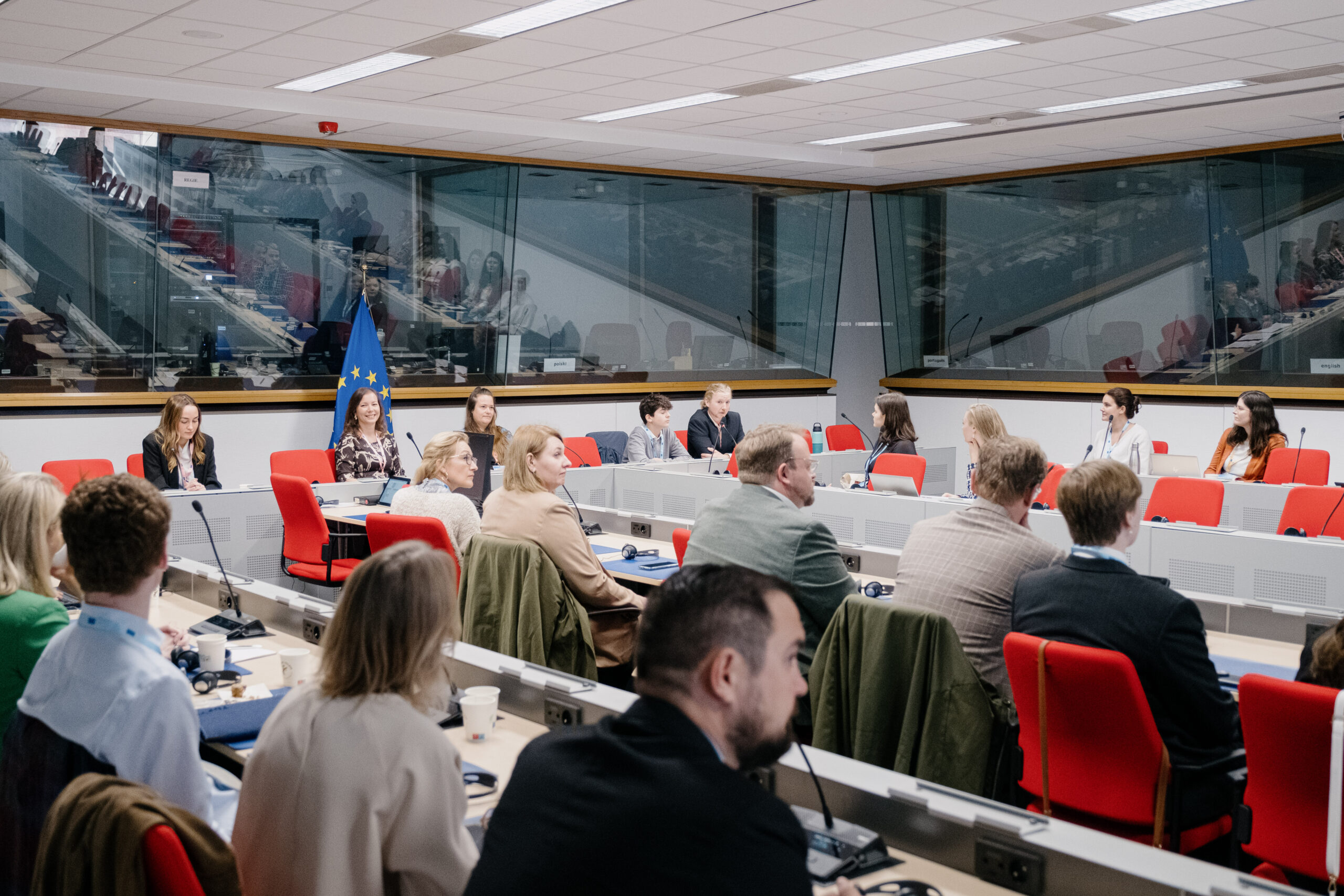of sexual exploitation by others and themselves. “I just considered it as something weird and uncomfortable.”
Hintalovon Foundation, as Hungarian ECPAT member, launched the first Global Boys Initiative Report in January 2022.
Why is it hard for boys experiencing sexual abuse or exploitation to seek help and assistance?
The four young men we spoke to about this issue explained that gender roles and expectation had a huge impact on how they perceived abuse. Messages such as boys should be able to “do everything alone,” and take care of themselves were very loud throughout their lives. They described pressure to keep family secrets and protect family reputations as factors that prevented them from disclosing abuse and seeking help.
“If there is a problem in the family, [it is understood that] it should remain a secret, a family affair.”
~ a young man who was subjected to sexual exploitation as a child
Frontline workers confirmed that these barriers do stop boys from disclosing. With anticipated stigma and shame listed as a key block to boys seeking help by 81% of participants.
The abuse often happens in settings which are considered safe, and is committed by trusted adults
Frontline workers were asked about the most commonly observed types of relationships that were involved with the sexual exploitation of boys:
- 44% said parents or step-parents
- 42% said other adult relatives
- 17% said people in authority over children
The four young men we spoke to explained that they were all subjected to sexual exploitation in settings that they considered safe at the time the abuse took place, at the hands at people that they and their families trusted. This made it hard for them to understand the abuse. They explained that for children, such circumstances make it difficult to even realise that something is not right, that they are being exploited.
“I considered it as something weird and uncomfortable…
I thought the guy was just being weird and acting in an embarrassing way”
~ a young man who was subjected to sexual exploitation as a child
Dominant beliefs about being a man put boys at risk, and keep them quiet
Frontline workers described that “the belief that boys are strong, not vulnerable, and able to protect themselves” negatively impacts on the likelihood that victimised boys will reach out for help. In some cases this silence serves to perpetuate the sexual exploitation they are experiencing.
The same views were shared by the young men who explained that realising they were victims often conflicted with messages that men could defend or take care of themselves. This caused shame, which was sometimes reinforced by offenders in order to keep them quiet.
It was clear that seeking help was seen by males as a sign of weakness:
“He is afraid of what will happen if it is revealed, what they will think of him. He is afraid that he will suffer some kind of disadvantage because of it.”
~ Frontline worker
Frontline workers said that boys’ tendencies to avoid directly discussing these hugely difficult issues also made it hard for them to establish whether they’d been sexually exploited and needed help. But they also understood why this might happen. Workers explained that boys might not trust adults, feel shame, or not even know exactly that something illegal was done to them.
“Boys will make ambiguous references, and often joke about inappropriate things. That makes it hard to tell if they are testing my limits or if they really need help.”
~ Frontline worker
Another barrier to disclosure was boys’ fears of being seen by others as gay if they disclosed that they were sexually exploited, regardless of whether they were heterosexual or not.
Abusers use grooming and manipulation
“But you were enjoying it too!”
~ (a survivor recalled this comment from the offender who abused him.)
One young man recounted that the offender used such comments often, which are clear forms of manipulation. It is crucial to acknowledge that children can never ‘consent’ or agree to the abuse adults are subjecting them to, however offenders often try to manipulate the children into believing otherwise.
So what do boys in Hungary need?
Our Country Overview on Hungary published in 2021 already revealed vulnerabilities related to child sexual exploitation – like the risks faced by children living in state care facilities and inefficient reporting procedures and protection systems when child sexual exploitation does occur.
Data in the Hungary Boys Report confirms that the systems are inadequate for responding and that frontline workers feel ill-equipped to recognise and handles cases involving boys. But the report also indicates ways forward.
Simple steps include:
- Training for all frontline workers, including social support workers and law enforcement to help boys feel more comfortable when seeking help
- Welcoming messaging and clearer visibility of services that boys could turn to
- Dismantle gender norms that inhibit boys’ freedom to show they are vulnerable.
Read the full report here.












